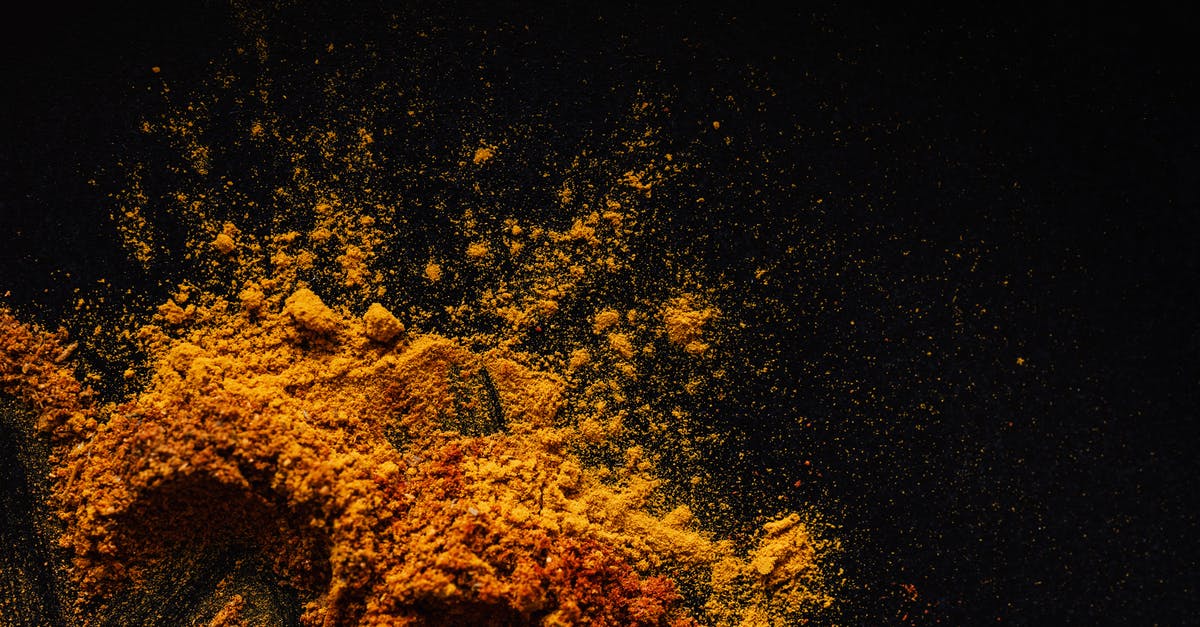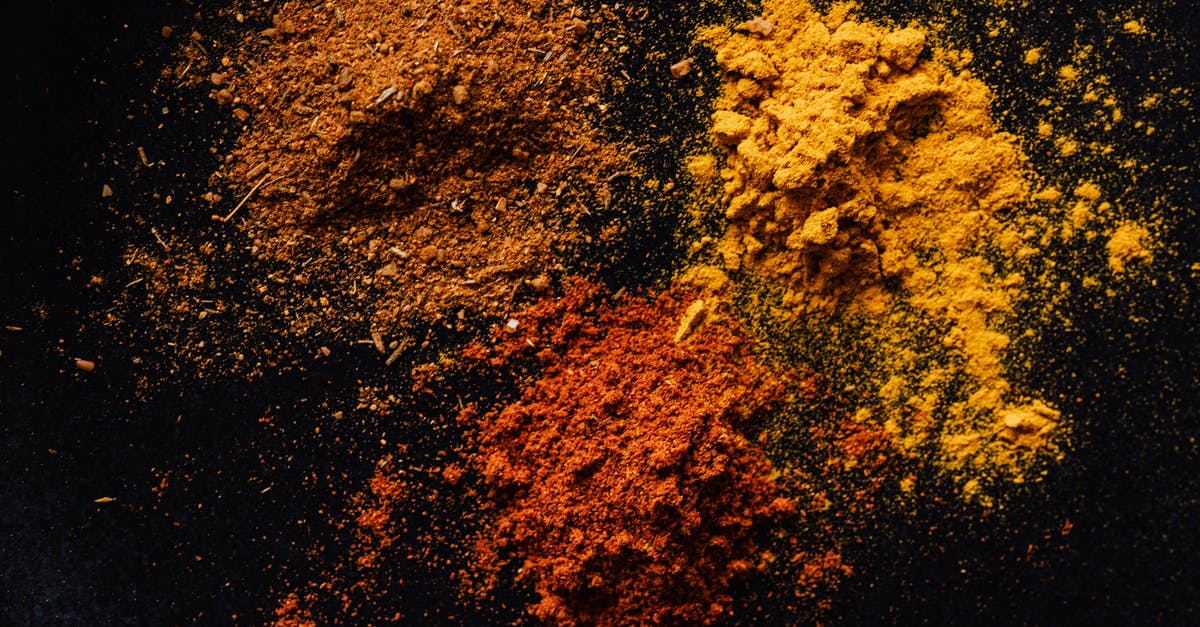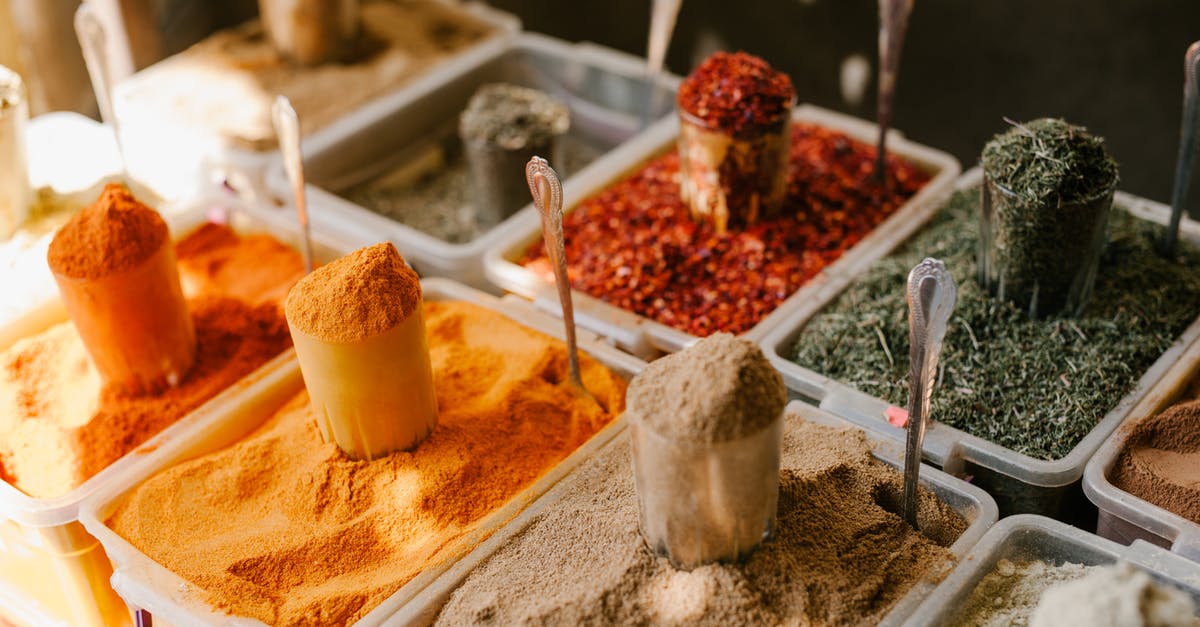What are the differences between spice paste and spice powder? Which should be preferred over the other for what reasons?

Assuming both are freshly available, are there reasons why one should prefer paste over powder or vice versa?
Example: I have seen both Garlic powder and Garlic paste available in the market.
Which one should be used in which circumstance for what reasons? Please answer in a generic way rather than focusing over Garlic.
Best Answer
Consider what the "no cheating" version of the ingredient is, and get the closest thing to that, that's convenient enough for you.
For things like garlic, ginger, etc., the "no-cheating" version is to get the fresh ingredients and crush/grate them - what you end up with is a paste. The paste you can buy in jars is this stuff, with preservatives added to make them last. Some flavour will be lost.
To make powder, the paste is dried, and more flavour is lost. But the powder will keep for a long time in the cupboard.
Note that some spices take on different, desirable flavours when processed. Paprika powder has its own properties when compared to fresh paprika peppers. You'd use fresh ginger in many curries, powdered ginger in many cakes, candied ginger in some other sweet dishes. Recipes will specify what to use.
For things like black pepper, cumin, turmeric, coriander seeds, the "no-cheating" version is to get whole seeds, roast them and grind them in a spice grinder or a pestle and mortar. So buying the ready-ground version is only one step away from the ideal. Try grinding your own at least once. The extra depth and complexity of flavour is striking. But for convenience, ready-ground spices are fine.
"Roasting", for small quantities of whole dry spice, involves briefly heating them on a hot dry pan. It brings out spice flavours you don't get from just frying or boiling the spice. Of course, it's optional.
Ground spices have a shorter shelf life than whole dry spices. If you open a jar of powdered spice and it doesn't have a strong aroma, throw it away -- you might as well use dust. Whole spices have the aroma "locked away", to be released when you grind.
To make a paste, these are sometimes mixed with wet ingredients (like garlic and ginger), water and oil. That's the basis of the jars of "spice mix" you can buy in supermarkets. It's also the first step in many curry recipes -- grind your spices, mix with oil to make a paste, and gently fry before adding the onions.
Pictures about "What are the differences between spice paste and spice powder? Which should be preferred over the other for what reasons?"



All You Need to Know About FOOD SPICES \u0026 HERBS + SPICES EVERY COOK SHOULD HAVE! - ZEELICIOUS FOODS
More answers regarding what are the differences between spice paste and spice powder? Which should be preferred over the other for what reasons?
Answer 2
Powdered spices have a much longer shelf life than pastes, which is why you'll find so many dried spices over pastes in your average store. Powders will last for years (although they will lose potency over time), whereas pastes will last days to weeks depending on how many preservatives they chuck in.
I have very few pastes at home because I have found I don't use them up in time so they partly go to waste, and also that they don't taste as good as making them from ingredients as needed. So really I don't bother with them personally. Taking garlic as an example (because you brought it up and it's actually one of the best examples I can think of where using fresh ingredients make the most sense), garlic powder lasts for ages but doesn't really taste like garlic, and paste lasts for a bit but doesn't taste like real garlic either. I just use real garlic.
Sources: Stack Exchange - This article follows the attribution requirements of Stack Exchange and is licensed under CC BY-SA 3.0.
Images: Karolina Grabowska, Karolina Grabowska, Karolina Grabowska, Julia Volk
